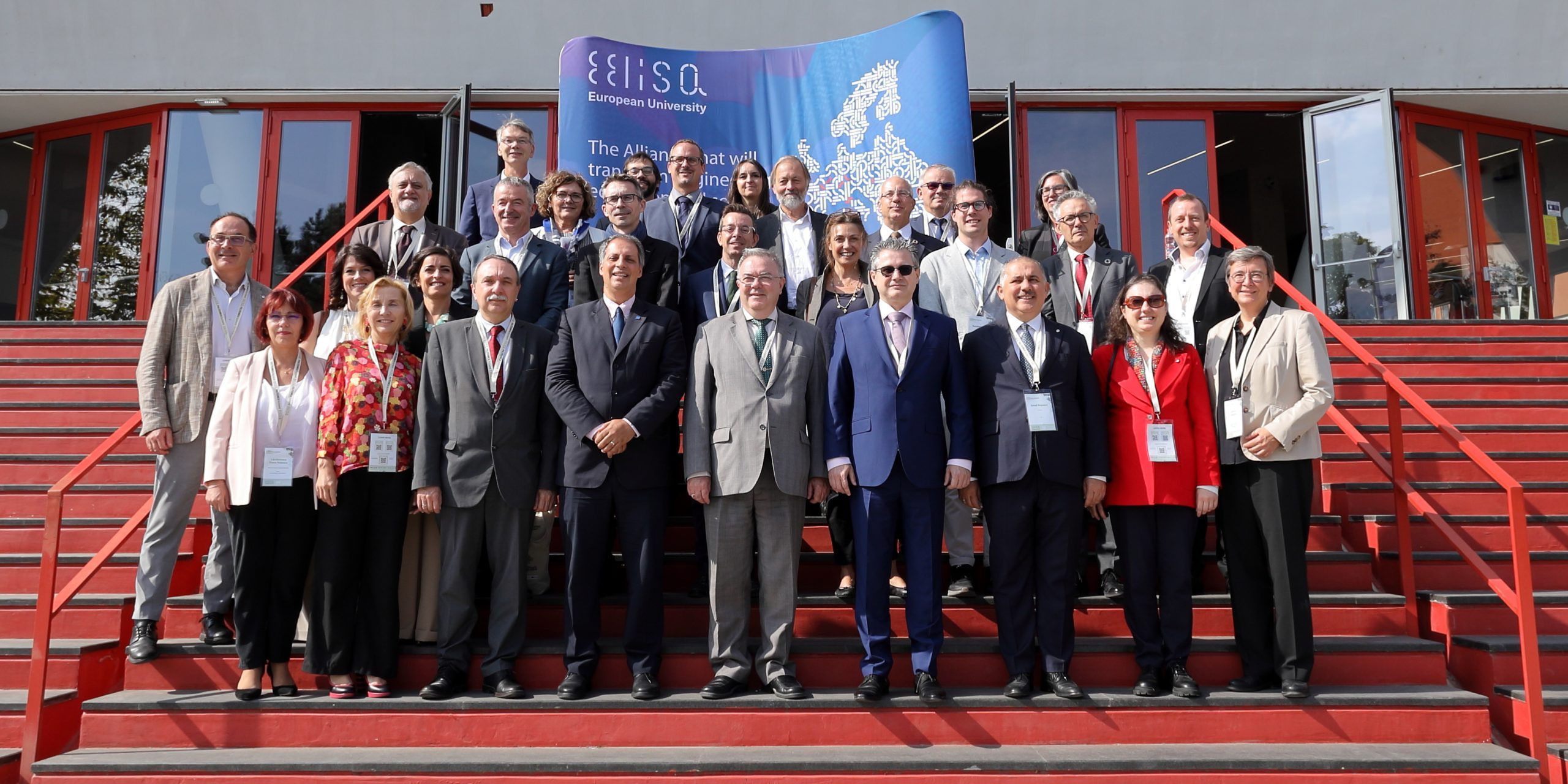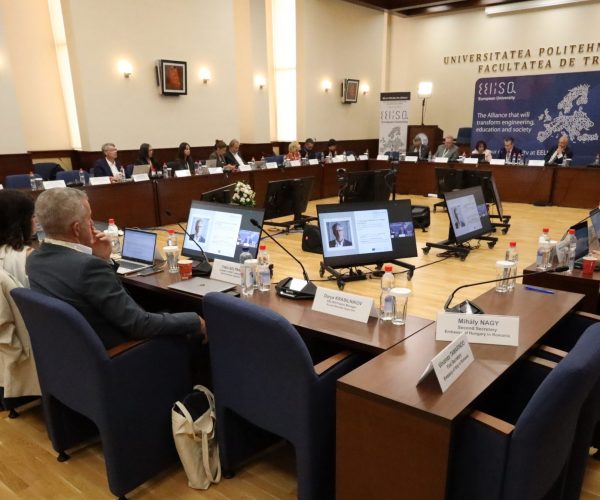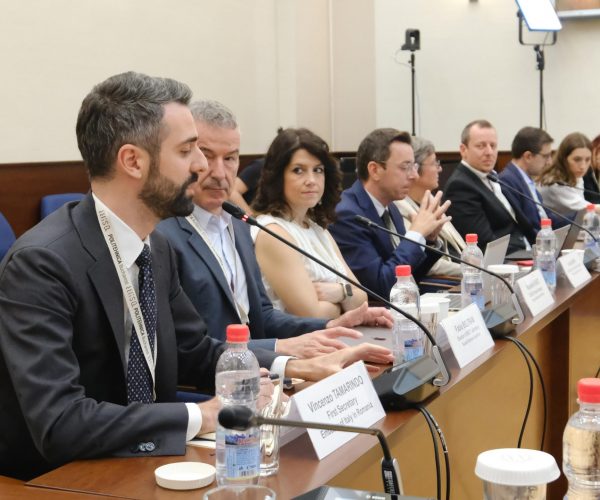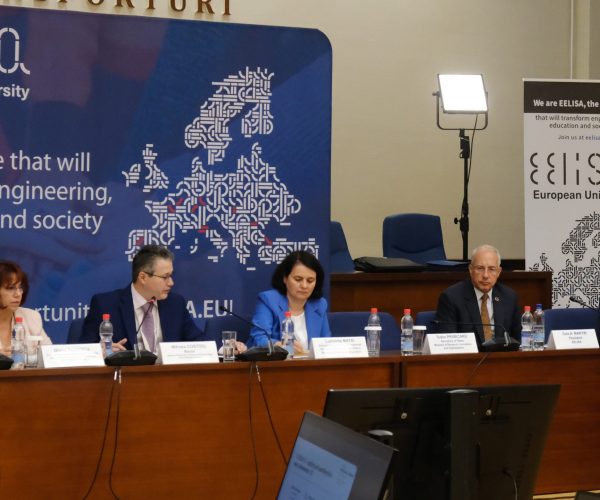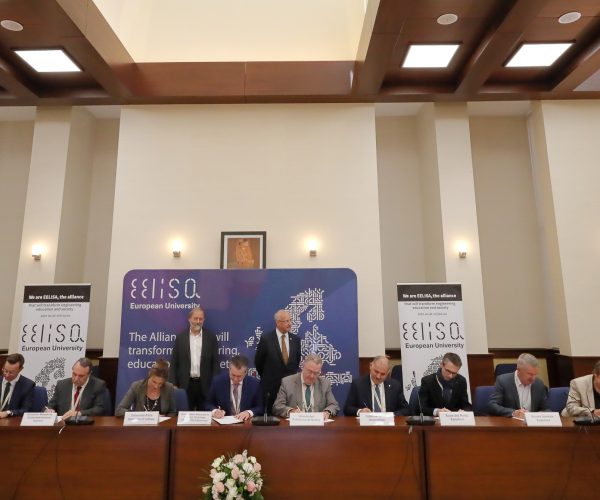A few weeks ago, in the context of the First EELISA International Conference (4-6 October, UNSTPB 2023), a very special meeting of the EELISA Governing Board took place chaired by Mihnea Costoiu (Rector, Universitatea Națională de Știință și Tehnologie Politehnica București).
In this last meeting of the first phase of EELISA, the Rectors, Directors, and Presidents of the EELISA institutions, together with representatives of faculty, staff, and students, came together to review the accomplishments of EELISA’s first three years, assess the key milestones and deliberate on the common goals for the next four years. In addition, key documents for the continuation of the Alliance were signed, such as the Mission Statement of EELISA 2.0 and the Alliance Framework Agreement.
Like other face-to-face occasions, this meeting contributed to furthering the capacity for dialogue and mutual understanding among Alliance partners. However, this meeting also marked a departure with regard to previous ones, providing the first opportunity in the Alliance’s history for open dialogue with representatives of national authorities and international organizations.
The aim of this occasion was to discuss the impact of the European Universities initiative at both national and European levels and to highlight the importance of cooperation between universities and national authorities in identifying and overcoming challenges to pave the way for future cross-border multilateral cooperation.
The distinguished guests invited to this special session were:
- Luminita Matei, Director General for International Relations and European Affairs, Ministry of National Education
- Markus González Beilfuss, Undersecretary, Spanish Ministry of Universities, Spanish Presidency of the EU
- Julien Chiapponee-Lucchesi, French Embassy in Romania, Head of Cooperation, Science and Culture
- Vincenzo Tamarindo, First Secretary, Embassy of Italy
At the opening segment of the session, Governing Board Chair Mihnea Costoiu highlighted key achievements of EELISA in its initial three years. These include the establishment of 48 EELISA Communities, the issuance of around 4,000 EELISA Credentials, the progress towards the definition of an EELISA European Engineer profile of the future, the development of a Disciplinary Broadening Framework for interdisciplinary collaboration between engineering and non-engineering disciplines, the Alliance’s visual and brand identity, coupled with its high engagement and external visibility during implementation, the development of the Digitwin4ciue master programme under Digital Europe, and the introduction of the prototype label for European joint degrees in engineering (JEDI), among other milestones.
Building upon these collective achievements, the Chair extended an invitation to national authorities for a fruitful discussion on what they perceive as the pivotal policy strides and benefits catalysed by the European Universities initiative. Additionally, he encouraged them to articulate their vision regarding collaborative strategies between Alliances such as EELISA and national authorities for the upcoming years.
On behalf of the Minister of National Education of Romania Ligia Deca, the Director General for International Relations and European Affairs of the Ministry Luminita Matei highlighted the positive impact at the national level of the 14 Romanian higher education institutions participating in the European Universities initiative, emphasizing benefits such as enhanced transnational cooperation, improved education and research quality, talent development, and the positive impact on society. She applauded the incorporation of provisions for alliance participation in the recent higher education law in Romania and stressed the need for ongoing dialogue between alliances and policy-makers to ensure these ideas are integrated into legislation.
Julien Chiappone-Lucchesi, Head of Cooperation, Science, and Culture at the French Embassy in Romania, praised EELISA and the European Universities initiative’s new platforms for dialogue and collaboration. He emphasized the strong support from the French state, particularly during its EU Council Presidency, stressing the need for increased governmental cooperation. He also highlighted two key expectations from the French government: language diversity and multilingualism, and a proactive approach to climate change.
Vincenzo Tamarindo, First Secretary of the Embassy of Italy, expressed his admiration for European Universities and their forward-thinking approach in light of present crises and challenges. He commended the involvement of two Italian partners in EELISA, highlighting his belief in European Universities alliances as crucial spaces for building strong connections among citizens of diverse nations. Additionally, he emphasized the pivotal role of alliances in leading the way in the twin digital and green transitions, as well as in addressing global challenges.
Wrapping up this round of interventions, Markus González Beilfuss, Undersecretary of the Spanish Ministry of Universities, lauded EELISA’s concrete accomplishments. He noted that the primary challenge for national authorities in relation to European Universities lies in understanding and supporting their specific needs. Beilfuss urged members of alliances to actively engage in dialogue with their respective authorities and to foster collaboration among themselves. He acknowledged that there is still work ahead in the creation of these spaces for dialogue.

